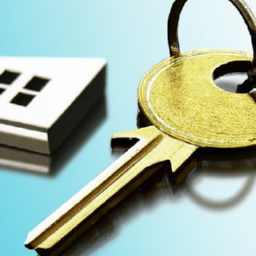Learn the CMA real estate meaning and its importance in the market. Discover the process, components, benefits, limitations, and compare it with appraisal and BPO. Explore the world of CMA software.
Condo Refinancing

If you are a homeowner looking for ways to effectively manage your condominium mortgage, ‘Condo Refinancing’ is the solution you have been searching for. This innovative product allows you to navigate the complex world of real estate mortgage education with ease, providing you with the necessary knowledge and tools to make informed decisions regarding your condo refinancing needs. With ‘Condo Refinancing’, you can confidently explore the benefits and intricacies of this financial endeavor.
Understanding Condo Refinancing
What is condo refinancing?
Condo refinancing refers to the process of replacing an existing mortgage on a condominium with a new loan. This is done to either obtain a better interest rate, reduce monthly mortgage payments, or take out cash from the equity in the condo. It is a financial strategy that allows condo owners to restructure their mortgage terms to better suit their current financial situation.
Why would someone consider condo refinancing?
There are several reasons why someone might consider condo refinancing. Firstly, if interest rates have significantly dropped since the original mortgage was taken out, refinancing can lead to substantial savings over the life of the loan. Additionally, if a condo owner is struggling with high monthly mortgage payments, refinancing can help lower them by extending the loan term or securing a lower interest rate. Lastly, condo refinancing can provide an opportunity for homeowners to access the equity that has built up in their property, which can be useful for financing home improvements, paying off debt, or covering other expenses.
Benefits of condo refinancing
Condo refinancing offers several benefits for homeowners. One of the major advantages is the potential for significant cost savings. By securing a lower interest rate, condo owners can reduce their monthly mortgage payments, which can free up funds for other important expenses. Additionally, refinancing can provide an opportunity to consolidate high-interest debt into one manageable payment, potentially saving money on interest charges. Furthermore, accessing the equity in a condo through refinancing allows homeowners to utilize their property’s value to achieve their financial goals, whether it’s funding education expenses, starting a business, or simply improving their overall financial situation.
Preparing for Condo Refinancing
Reviewing your financial situation
Before proceeding with condo refinancing, it is crucial to have a clear understanding of your current financial situation. This involves carefully assessing your income, expenses, and savings. It is essential to determine whether refinancing is a viable option and if it aligns with your long-term financial goals. Carefully reviewing your finances will also give you an idea of the type of loan terms and interest rates you may qualify for.
Checking your credit score
A good credit score plays a vital role in obtaining favorable loan terms. Before applying for condo refinancing, it is advisable to check your credit score and review your credit report. Your credit score will influence the interest rate you are offered, so it is important to ensure it is accurate and maximize your score if possible. By identifying any errors or areas for improvement, you can take steps to improve your creditworthiness and potentially secure better loan terms.
Gathering necessary documents
Condo refinancing requires the submission of various documents to lenders for evaluation. These documents typically include recent pay stubs, tax returns, bank statements, and proof of homeowners insurance. It is important to gather these documents in advance to streamline the refinancing process. Having all the necessary paperwork ready will not only save time but also demonstrate your preparedness and reliability to potential lenders.
Choosing a Lender
Researching different lenders
When it comes to condo refinancing, it is essential to research and compare different lenders to find the most suitable option for your needs. Take the time to research reputable lenders, both traditional and online, and understand the range of loan products they offer. Look for lenders with a strong track record, competitive rates, and favorable customer reviews. This research will help you make an informed decision and select a lender that aligns with your specific refinancing goals.
Comparing interest rates and terms
Interest rates and loan terms can vary significantly between lenders. It is important to compare these factors to ensure you obtain the best possible refinancing terms for your condo. Keep in mind that even a small difference in interest rates can have a significant impact on your monthly payments and the total cost of the loan over its term. Consider obtaining quotes from multiple lenders and carefully review the associated terms and conditions before making a decision.
Reading customer reviews
Reading customer reviews can provide valuable insights into the experiences of other borrowers with a particular lender. Look for reviews that specifically mention condo refinancing to get a sense of how well the lender handles this process. Pay attention to feedback regarding customer service, responsiveness, and the overall satisfaction of borrowers. Taking the time to read customer reviews will help you gauge the level of professionalism and reliability of potential lenders.
The Condo Appraisal Process
What is a condo appraisal?
A condo appraisal is an evaluation of the value of a condominium property conducted by a licensed appraiser. This appraisal helps determine whether the requested loan amount for condo refinancing aligns with the property’s current market value. The appraiser considers various factors, including the size, condition, location, and amenities of the condo, as well as recent sales of similar properties in the area.
Why is a condo appraisal necessary?
A condo appraisal is necessary because it provides assurance to the lender that the value of the property is sufficient to secure the loan. Lenders want to ensure that the loan amount is not greater than the actual value of the condo. The appraisal also helps protect borrowers from overpaying for a property and ensures that their investment aligns with market standards. By determining the current value of the condo, the appraisal promotes transparency and fairness in the refinancing process.
What factors affect the condo appraisal value?
Several factors can influence the appraisal value of a condo. The location and desirability of the condominium complex play a significant role in the appraisal process. A well-maintained and secure building in a desirable neighborhood will likely have a higher value compared to a similar property in a less desirable location. The size, layout, and condition of the unit itself also impact the appraisal value. Finally, amenities such as parking spaces, swimming pools, and fitness centers can impact the overall value of a condo.
The Loan Application Process
Filling out the loan application form
Once you have chosen a lender, the next step in the condo refinancing process is to fill out the loan application form. This form typically requires information about your personal and financial background, including your employment history, income, and assets. Be prepared to provide detailed information about your current mortgage as well, including the outstanding balance, interest rate, and any escrow accounts. Completing the loan application accurately and thoroughly is essential to ensure a smooth and efficient process.
Providing supporting documents
In addition to the loan application form, you will need to provide supporting documents to the lender for verification purposes. These documents may include recent pay stubs, tax returns for the past two years, bank statements, and proof of homeowners insurance. The lender may also request additional documents specific to your financial situation. Providing these documents in a timely manner will help expedite the loan application process and increase the likelihood of a successful refinancing.
Waiting for loan approval
After submitting your loan application and supporting documents, the lender will review your information and assess your eligibility for condo refinancing. This evaluation includes verifying your income, reviewing your credit history, and evaluating the appraised value of the condo. The loan approval process can take several weeks, so it is important to be patient during this time. Maintaining open communication with the lender and promptly responding to any requests for additional information can help expedite the approval process.
Understanding Loan Terms
Fixed-rate vs adjustable-rate loans
When refinancing a condo, borrowers have the option to choose between fixed-rate and adjustable-rate loans. A fixed-rate loan offers a consistent interest rate and monthly payment throughout the loan term. This provides stability and predictability, making it easier to budget for mortgage payments. On the other hand, an adjustable-rate loan (ARM) typically offers a lower initial interest rate for a set period, followed by adjustments based on market conditions. ARMs can be advantageous if interest rates are expected to decrease in the future but come with the risk of higher payments if rates rise.
Loan repayment options
Condo refinancing also allows borrowers to consider different loan repayment options. The most common repayment options are a 15-year or 30-year term. A 15-year term offers a shorter repayment period and results in higher monthly payments but allows borrowers to pay off the loan faster and save on interest charges. Alternatively, a 30-year term provides lower monthly payments but extends the repayment period, resulting in higher overall interest payments. Choosing the right repayment option depends on your financial goals and your ability to comfortably afford the monthly payments.
Penalties for early loan repayment
It is important to carefully review the loan terms regarding penalties for early loan repayment. Some lenders may impose prepayment penalties if you pay off the loan before a certain period, typically within the first few years. Prepayment penalties can significantly impact the cost-effectiveness of condo refinancing, particularly if you plan to sell or refinance again in the near future. Be sure to understand the terms regarding prepayment penalties and consider whether the potential savings outweigh the consequences of early loan repayment.
Closing the Condo Refinancing
Reviewing the loan estimate and closing disclosure
Before closing the condo refinancing, the lender will provide a loan estimate and a closing disclosure. The loan estimate outlines the estimated fees, interest rate, and monthly payments associated with the refinanced loan. Review this document carefully to ensure that it aligns with your expectations and meets the terms agreed upon with the lender. The closing disclosure provides a final breakdown of the loan terms, including the interest rate, closing costs, and other important details.
Scheduling a closing date
Once you are satisfied with the loan estimate and closing disclosure, you can proceed to schedule a closing date with the lender. The closing date is when the refinancing process is finalized, and the new loan takes effect. It is important to coordinate with all relevant parties involved in the refinancing, such as the lender, your attorney, and the title company. Scheduling the closing in a timely manner will help ensure a smooth and efficient transition to the new loan.
Signing the necessary paperwork
On the closing date, you will be required to sign various legal documents related to the condo refinancing. These documents typically include the promissory note, deed of trust, and other loan-related agreements. It is crucial to carefully read and understand each document before signing, as they represent legally binding commitments. If you have any questions or concerns, seek clarification from your attorney or the lender’s representative. Once all the necessary paperwork is signed, the refinancing process is complete, and you can begin enjoying the benefits of your new loan terms.
Post-Refinancing Considerations
Updating your condo insurance
After completing the condo refinancing, it is important to update your homeowner’s insurance policy to reflect the new loan terms. This ensures that your condo is adequately covered in the event of any damage or loss. Contact your insurance provider and provide them with the necessary documents related to the refinancing. It is also a good time to review your coverage limits and consider any additional coverage options that may be beneficial.
Budgeting for new loan payments
With your new loan terms in place, it is important to update your budget to accommodate the new mortgage payments. Carefully review your income and expenses and adjust your budget accordingly. Take into consideration any changes in monthly payments, interest rates, and loan terms. It may be necessary to make some adjustments to your spending habits or financial goals to ensure you can comfortably meet the new obligations.
Monitoring interest rates for potential future refinancing
As market conditions and your personal financial situation change over time, it is important to monitor interest rates for potential future refinancing opportunities. Refinancing again in the future may provide an opportunity to further reduce your monthly payments or access additional equity in your condo. Regularly keeping track of interest rates and evaluating your financial goals will help you make informed decisions regarding future refinancing.
Common Challenges in Condo Refinancing
Insufficient equity in the condo
One common challenge in condo refinancing is having insufficient equity in the property. Lenders typically require a certain level of equity before approving a refinancing application. If the current value of your condo is lower than the outstanding mortgage balance, you may not qualify for refinancing or may be limited in your options. To overcome this challenge, consider waiting for the property’s value to increase or explore alternative financing options.
Higher interest rates for condos
Condos often come with higher interest rates compared to single-family homes. This is because condos are deemed higher risk due to factors such as homeowner association fees, maintenance responsibilities, and the potential for disruptive neighbor behavior. Higher interest rates can make securing favorable loan terms more challenging and may reduce the potential cost savings associated with condo refinancing. It is important to carefully evaluate the interest rates offered by lenders and compare them to your current mortgage before proceeding with refinancing.
Difficulties in obtaining a condo project approval
In some cases, lenders may require the condo project to undergo an approval process before granting refinancing. This can involve a review of the financial stability and management of the condo association, as well as an assessment of any pending litigation or special assessments. Difficulties in obtaining condo project approval can delay the refinancing process or even result in denial of the application. It is advisable to research and select a condo complex that has a good track record and is likely to meet the lender’s approval criteria.
Alternatives to Condo Refinancing
Home equity loans and lines of credit
If condo refinancing is not feasible or suitable for your situation, consider exploring home equity loans or lines of credit as alternative options. These allow you to tap into the equity built up in your condo without replacing your existing mortgage. Home equity loans provide a lump sum of cash with fixed interest rates and predictable monthly payments, while home equity lines of credit function more like a credit card, allowing you to borrow as needed up to a certain limit. These alternatives can be useful for specific purposes, such as financing home renovations or consolidating high-interest debt.
Unsecured personal loans
Another alternative to condo refinancing is obtaining an unsecured personal loan. This type of loan does not require collateral, such as your condo, making it a viable option for those who do not want to risk their property or have insufficient equity. Unsecured personal loans typically have higher interest rates compared to mortgage loans, but they can be a suitable choice for financing smaller expenses or consolidating high-interest debt. It is important to carefully assess the terms and interest rates of unsecured personal loans and compare them to other financing options before making a decision.
Selling the condo
If condo refinancing, home equity loans, or personal loans are not viable options, selling the condo may be the best course of action. This allows you to cash in on the accumulated equity in the property and potentially find a more affordable housing option. Selling the condo can provide a fresh start and alleviate the financial burden associated with mortgage payments. However, it is important to carefully consider the impact on your living situation, future housing needs, and the overall real estate market before deciding to sell.
In conclusion, understanding condo refinancing is crucial for condo owners who are considering this financial strategy. By comprehensively reviewing your financial situation, researching different lenders, and understanding the appraisal and loan application processes, you can navigate the refinancing process with confidence. Carefully evaluating loan terms, closing the refinancing, and considering post-refinancing considerations will ensure that you make the most informed decisions for your financial well-being. While there may be challenges and alternative options to consider, condo refinancing can provide significant benefits and help you achieve your long-term financial goals.


